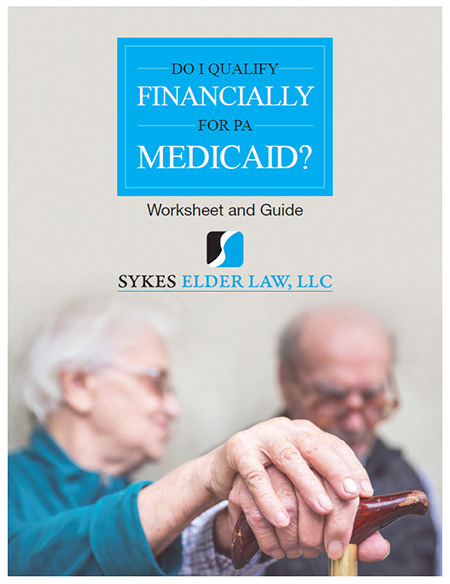This blog post is the twelfth chapter of a series entitled “How to Qualify for Medicaid in Pennsylvania.” This post focuses specifically on Medicaid Waiver Programs. Qualifying for Medicaid can be confusing and complicated, but this guide helps explain it easily. You can order a copy of the complete guide here.
Who is Eligible for a Medicaid Waiver?
A person with long term care needs may also be able to obtain care services through Medicaid under a “waiver” program, also known as Home and Community Based Services (or HCBS). Under this program, the state waives its requirement that the applicant reside in an institutionalized setting such as a nursing home, and allows the applicant to receive services in a community-based setting, such as living at home.
The Pennsylvania Department of Human Services website (www.dhs.pa.gov) describes various waiver programs available in Pennsylvania.
A waiver applicant must meet the usual requirements for Medicaid eligibility, including citizenship, residency, medical need, and financial qualification. If a waiver applicant is married, his or her spouse is entitled to the community spouse financial provisions – a community spouse resource allowance and a monthly maintenance needs allowance.
A major difference, though, is that a waiver applicant’s income is subject to a cap, currently set at $2,523 a month. If income exceeds that amount, a person interested in the waiver program should consult legal counsel well versed in Medicaid law to see if arrangements can be made to obtain approval.
How to Get Approved for a Medicaid Waiver
Approval for participation in a waiver program is not automatic, due to limited capacity and funding. To gain approval, there must be a slot available, and there can be a waiting list.
Waiver applications do not start with the County Assistance Office, but rather with an “independent enrollment broker,” currently a company called Maximus. For information on starting a waiver application, visit the Pennsylvania independent enrollment broker website at www.paieb.com.
This post is part of a series about “How to Qualify for Medicaid in Pennsylvania”
- Medicaid for Long Term Care
- Countable Assets
- Exempt (Non-Countable) Assets
- Asset Limit: Applicant & Spouse
- Spouse's Income
- When No Spend Down Is Necessary
- Gifting & the Medicaid Look Back Period
- How to "Spend Down" to Qualify
- Liability for Care Costs and Applicants' Children
- Medicaid Application Process
- What Happens After Medicaid/ Approval
- Medicaid Waiver Program
- Estate Recovery – What Happens After Death?
14. What is Medicaid Planning?






